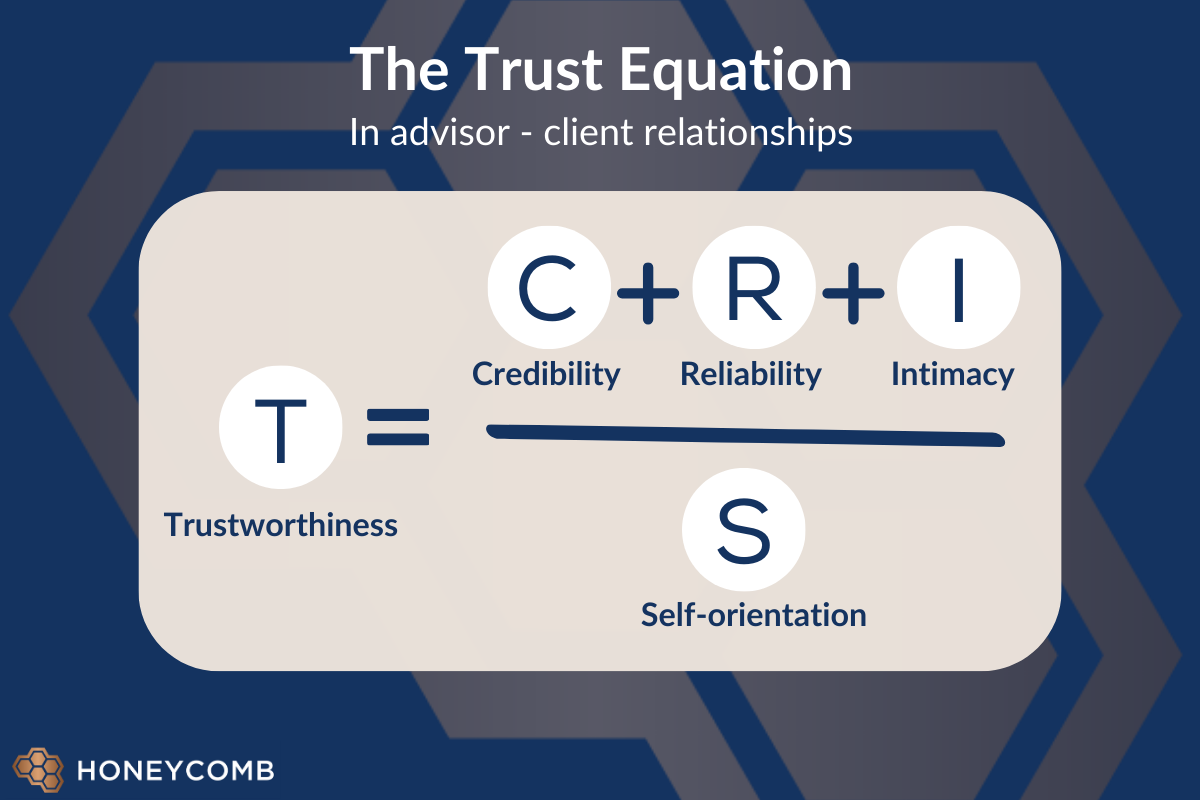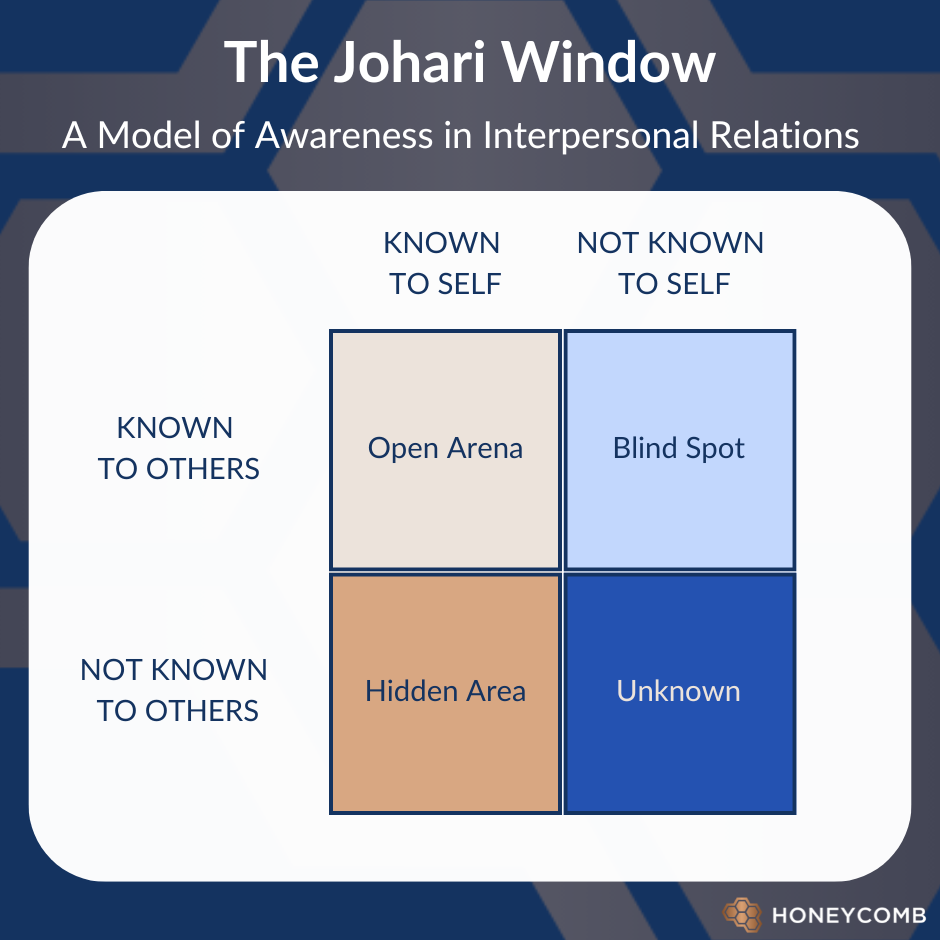The Consultants' Discomfort With Intimacy
Why the 'scariest' part of the Trust Equation might be your biggest advantage
If you’ve been with us a while you’ll be familiar with The Trust Equation, and David H. Maister’s book The Trusted Advisor which featured in our list of Ten Must-Read Books for Consultants. We explored the Trust Equation in Skills to grow your reputation and revenue and dived deeper into the Reliability component in Practical ways to demonstrate reliability as a consultant.
Here, we take a look at the concept of Intimacy. If it makes you feel slightly uncomfortable, you’re not alone. But it needn’t. Let’s explore a different way to think about it….
In a training session this week we introduced the Trust Equation to a group of consultants. For them, it was a new concept. If it is for you too, know that it comprises four key components:
1. Credibility - do you know your subject matter?
2. Reliability - do you deliver what you say you will?
3. Intimacy - do you make people feel safe and secure?
4. Self-orientation - are you able to focus on the other person more than yourself?
When Credibility, Reliability, and Intimacy are high and Self-orientation is low you increase your Trustworthiness in the eyes of your client.
The component that caused our group of learners the biggest challenge was Intimacy.
At the initial use of the word, I heard a few titters. This makes sense. Our association with intimacy is often physical or sexual - not things we want to be thinking about at work and in the context of our clients.
Then, a couple of questions which hinted at discomfort:
“How does it work mathematically? If we are really strong on credibility and reliability, can we get away with intimacy being low…even say, zero?”
This makes sense too. Most consultants are likely to feel most comfortable in the practical realms of credibility and reliability. Know your stuff and deliver what you say you will. That equals competence and a job well done. Can that not be enough?
Why Intimacy Matters
It’s not really enough, because you are human, and you are interacting with other humans. Of course, you can over-index on credibility and reliability, but the thing that really sets you apart from others (and in these times, AI and automation systems too) is your unique humanness.
David Maister says1:
For me, the secret to the ‘intimacy’ aspect of trust, whether dealing inside or outside an organization, is the simple act of getting out of role-to-role interactions, and making them encounters between real people. In other words, treat me like a person, not an ‘employee’ or a ‘customer.’
Positioned this way, intimacy simply means building a human relationship with someone which makes them feel validated and safe.
If you truly want to help your clients and be a good leader in your business, you need to develop good relationships with people. Enable them to bring their problems and challenges to you….and trust that you will do right by them.
Take a moment to think of a client or colleague you are working with. What might you unlock if you made them feel safer and more validated?
The Johari Window - a Model for Developing Intimacy
If intimacy is building a safe relationship with someone, it’s necessarily a delicate thing. It requires you to reveal things about yourself to the other person to develop and deepen a connection. However, I’d suggest it’s not a great idea to meet your new client later and start venting about an argument you had with your spouse.
Intimacy has to be built up gradually and carefully managed.
The Johari Window model gives us a way to think about that.
The Johari Window was created by Joseph Luft and Harry Ingham in 1955. The model describes a four-quadrant ‘window’ which can be used as a tool to support group dynamics and interpersonal relationships. It considers what is known to the self and what is known to others.
When you first meet someone, the Open Arena is small. The process of building a relationship involves bringing information into the Open Arena to make this window gradually larger. This may be something you choose to move from Hidden to Open by sharing it freely, or it may be something in your Blind Spot you are made aware of through feedback.
In a 2-page article published by Joseph Luft in 1961 (attached below)2 he outlines the ‘Principles of Change’ as they relate to the model. The most pertinent in this context include:
A change in any one quadrant will affect all other quadrants.
Threat tends to decrease awareness; mutual trust tends to increase awareness. + Forced awareness (exposure) is undesirable and usually ineffective.
The smaller the (Open) quadrant, the poorer the communication.
There is universal curiosity about unknown areas, but this is held in check by custom, social training, and by diverse fears.
Sensitivity means appreciating the covert aspects of behavior in Quadrants (Hidden, Blind, and Unknown) and respecting the desire of others to keep them so.
In summary, you should work to increase the Open Arena (awareness), but don’t force it or contravene social norms as this can be detrimental to your aim.
Get it right though, and you can experience Luft’s and Maister’s ideas coming together in a positive feedback loop:
Trust increases Awareness → Awareness increases Intimacy →
Intimacy increases Trust.
When people trust you, they're more comfortable sharing information (awareness grows). As you learn more about each other and handle that information respectfully, emotional safety (intimacy) deepens. This increased intimacy then strengthens trust further (as per the Trust Equation), continuing the cycle.
Going back to the question from our learner this week:
“Can we get away with intimacy being low…even say, zero?”
If, as Maister says, intimacy is simply treating clients ‘like a person’, why would you choose not to? Start slowly, and nudge the positive feedback loop into gear. Once it gets going, you might find it’s not that scary at all.
Share your experiences: What approaches have helped you build genuine connections with clients? How do you balance professional boundaries with building authentic relationships?
Thank you for reading The Skilled Consultant. If you haven’t yet subscribed, please do so to receive all our articles direct to your inbox.
There are several other ways you can interact with Honeycomb Consulting Skills Training….
Connect with Deri Hughes (Founder & MD) on LinkedIn
Connect with Colin Mann (MD) on LinkedIn
Book a 30 minute intro call with Deri Hughes
Stay informed about our free workshops and webinars - follow Honeycomb on LinkedIn or visit our website.
Luft’s original article:








